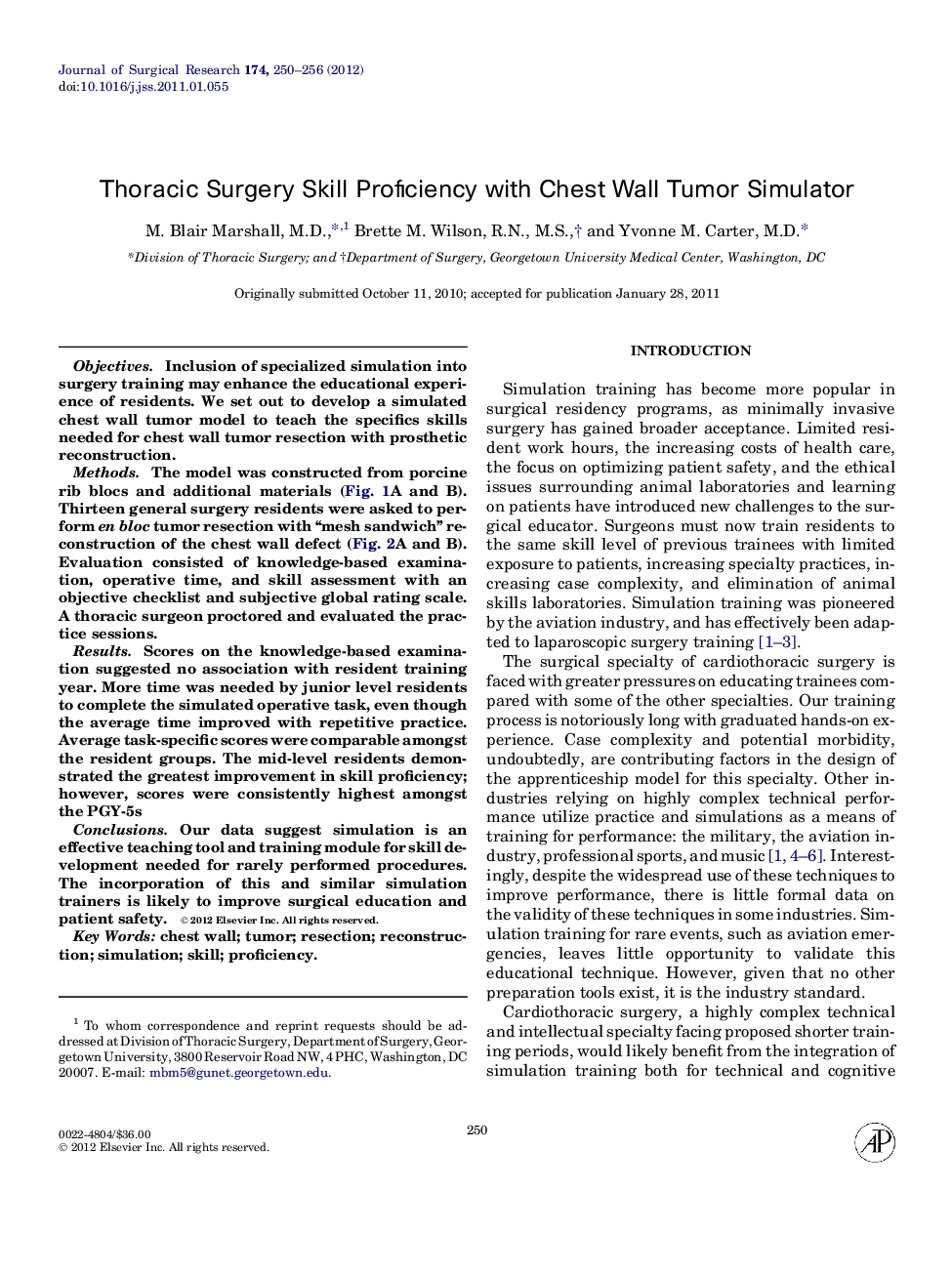| Article ID | Journal | Published Year | Pages | File Type |
|---|---|---|---|---|
| 6254670 | Journal of Surgical Research | 2012 | 7 Pages |
ObjectivesInclusion of specialized simulation into surgery training may enhance the educational experience of residents. We set out to develop a simulated chest wall tumor model to teach the specifics skills needed for chest wall tumor resection with prosthetic reconstruction.MethodsThe model was constructed from porcine rib blocs and additional materials (Fig. 1A and B). Thirteen general surgery residents were asked to perform en bloc tumor resection with “mesh sandwich” reconstruction of the chest wall defect (Fig. 2A and B). Evaluation consisted of knowledge-based examination, operative time, and skill assessment with an objective checklist and subjective global rating scale. A thoracic surgeon proctored and evaluated the practice sessions.ResultsScores on the knowledge-based examination suggested no association with resident training year. More time was needed by junior level residents to complete the simulated operative task, even though the average time improved with repetitive practice. Average task-specific scores were comparable amongst the resident groups. The mid-level residents demonstrated the greatest improvement in skill proficiency; however, scores were consistently highest amongst the PGY-5sConclusionsOur data suggest simulation is an effective teaching tool and training module for skill development needed for rarely performed procedures. The incorporation of this and similar simulation trainers is likely to improve surgical education and patient safety.
